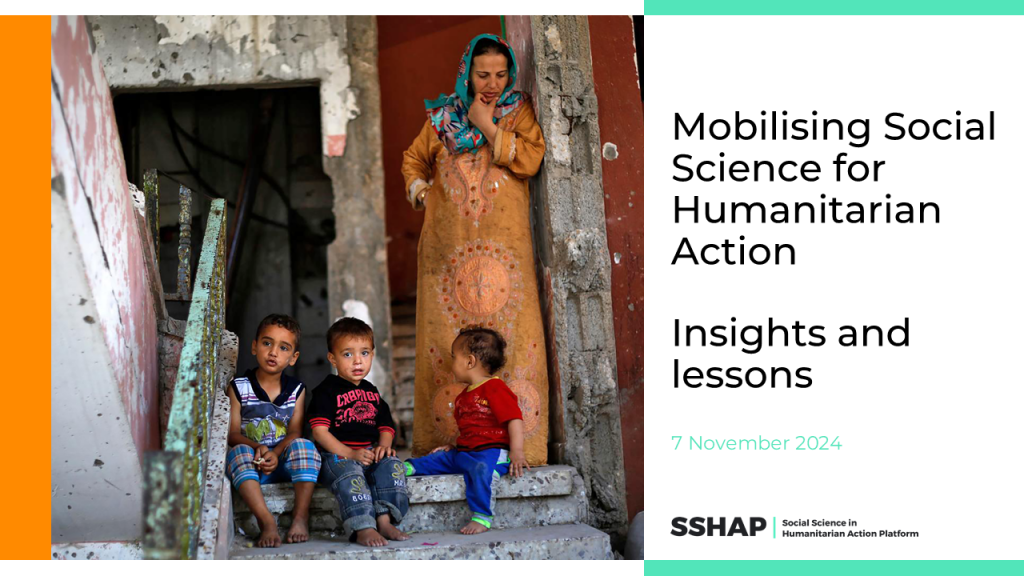Watch the SSHAP learning webinar
‘Mobilising social science for humanitarian action’, a bilingual webinar held on Thursday 7 November 2024, highlighted key experiential insights and lessons from SSHAP’s mobilisation of social science perspectives and evidence to contribute to improved preparedness and response to outbreaks, health emergencies and humanitarian crises.
SSHAP members, partners and stakeholders presented learning, through examples of SSHAP’s work, and discussed key considerations for encouraging and supporting emergency preparedness and responses that are contextually informed, sensitive to vulnerabilities and power relations, planned in consultation with affected communities and local institutions, and based on social and interdisciplinary science and evidence.
The webinar explored a range of themes to enhance the integration and impact of social science knowledge and expertise, including:
- localisation of leadership and knowledge
- capacity building of individuals, institutions and networks, and
- responding to knowledge needs and gaps.
Speakers
- Jeremy Farrar, Chief Scientist, World Health Organization
- Rachel James, Interagency RCCE Coordinator for East and Southern Africa, UNICEF/Collective Service
- Hanna Woldemeskel, Social and Behaviour Change Manager, UNICEF Zambia
- Godefroid Muzalia, Research Director, Groupe d’Etudes sur les Conflits et la Sécurité Humaine (GEC-SH), DRC
- Jennifer Palmer, Associate Professor, Department of Global Health and Development, London School of Hygiene & Tropical Medicine, UK
- Hayley MacGregor, Professor of Medical Anthropology and Global Health, Institute of Development Studies, UK
- Juliet Bedford, Founder and Director, Anthrologica, UK
Chair
- Melissa Parker, Professor of Medical Anthropology, London School of Hygiene & Tropical Medicine, UK




